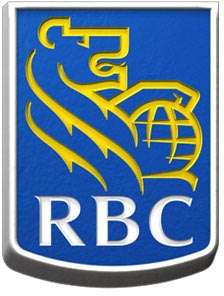RBC Closes Bank Accounts of Poker Players
 According to various posters on 2+2, Royal Bank of Canada has begun threatening to close – and in some cases closing – the banks accounts of people suspected of transferring funds onto and off of online gambling sites. Although RBC’s tactic is not entirely new for the poker industry, account closures had previously been limited to U.S.-based banks and accounts. RBC’s actions represent the first reported instance of such closures occurring outside the U.S.
According to various posters on 2+2, Royal Bank of Canada has begun threatening to close – and in some cases closing – the banks accounts of people suspected of transferring funds onto and off of online gambling sites. Although RBC’s tactic is not entirely new for the poker industry, account closures had previously been limited to U.S.-based banks and accounts. RBC’s actions represent the first reported instance of such closures occurring outside the U.S.
“One of [our] policy requirements restricts the use of RBC accounts to facilitate online or Internet gambling,” reads a letter RBC sent to one 2+2 poster. “In light of these requirements, please do not use RBC accounts in connection with online gambling activities. Please understand that our concerns with respect to the use of your RBC accounts are serious. If you continue to use your RBC accounts in connection with online gambling activities, we may have to exit our banking relationship with you.”
The initial post drew a flurry of responses, including one from 2010 WSOP bracelet winner Miguel Proulx, a resident of Quebec. Proulx stated that, despite making only four or five wires transfers a year, RBC closed his personal account five months ago without telling him why.
“They kicked me out and the only reason they gave me was ‘because we can’,” wrote Proulx.
The subject of poker player bank account closures gained prominence a few weeks ago when Team PokerStars Pro Eugene Katchalov wrote on the PokerStars Blog about JP Morgan Chase closing his own account. Chase representatives “knew I was a poker player with lots of poker-related transactions and wires,” Katchalov wrote. “The branch manager was even a poker fan of mine.”
That didn’t impress Chase’s controllers. Although Katchalov’s bank representative successfully persuaded the bank not to close his account initially, six months later the controllers got their way. Katchalov was forced to close the account. He was not the only person to receive such treatment. Fellow poker pro Jason Somerville went through something similar with one of his bank accounts at Chase.
Katchalov claimed that his Chase contact told him, “The back office people don’t like it when any account makes too many international wire transfers. They feel it’s a high-risk account.”
Unspoken there is what form the supposed high risk takes. Obvious concerns from a bank’s perspective would be money laundering and, to a lesser extent, unlawful gambling. On 2+2, some posters pointed to the involvement of Skrill (Moneybookers), a popular payment processing service for online gambling sites, as a likely red flag for RBC, Chase and other banks. As much of Moneybookers’ business is with online gambling sites, any Moneybookers transaction into or out of a player’s bank account could potentially raise eyebrows at the bank.
However, it’s difficult to know the exact reasoning behind the account closures, as the banks have been less than forthcoming when pressed for an explanation. The closures also don’t follow any discernible pattern. I received a warning a year and a half ago from Chase, with whom I have banked for 15 years, that Chase will not process online gaming transactions and will close my account if they suspect me of trying to do so.
Despite regularly receiving wire transfers from online poker companies for consulting work, my account has never been closed. Some Canadian RBC customers told similar tales, including one player who claimed to have been an RBC customer for 8 years with repeated poker transfers into and out of his account. He has never received a warning letter.
At least as it relates to Chase, all of this may be continuing fallout from the UIGEA, which prohibits financial institutions from processing payments on behalf of any business engaged in unlawful internet gambling, if such payments are related to any form of unlawful wagering. However, it’s unclear why RBC has taken such a hard line with its Canadian customers in the absence of similar Canadian legislation, since RBC sold all of its U.S. operations (operated under the “RBC Bank” brand) to PNC Bank in March 2012.




















COMMENTS